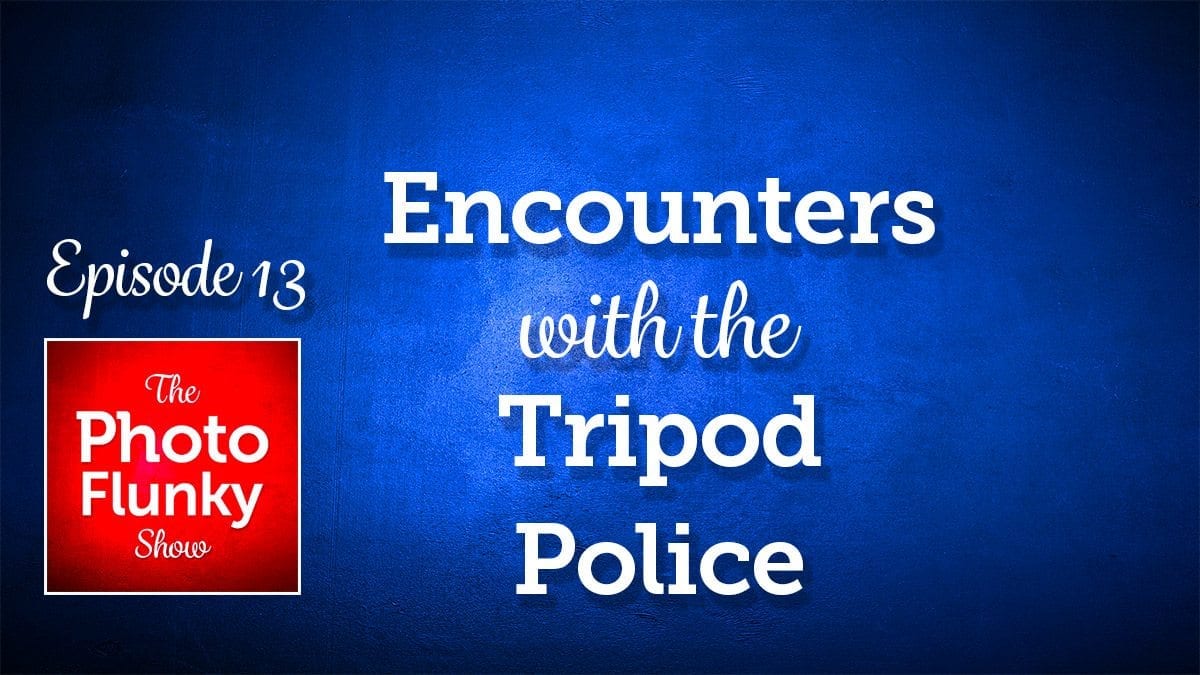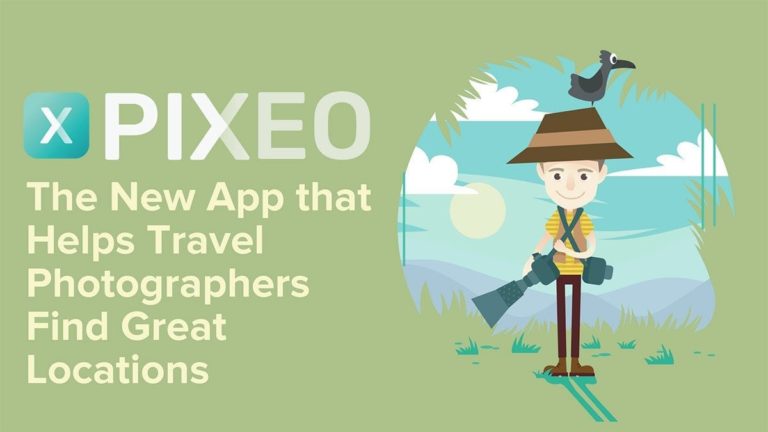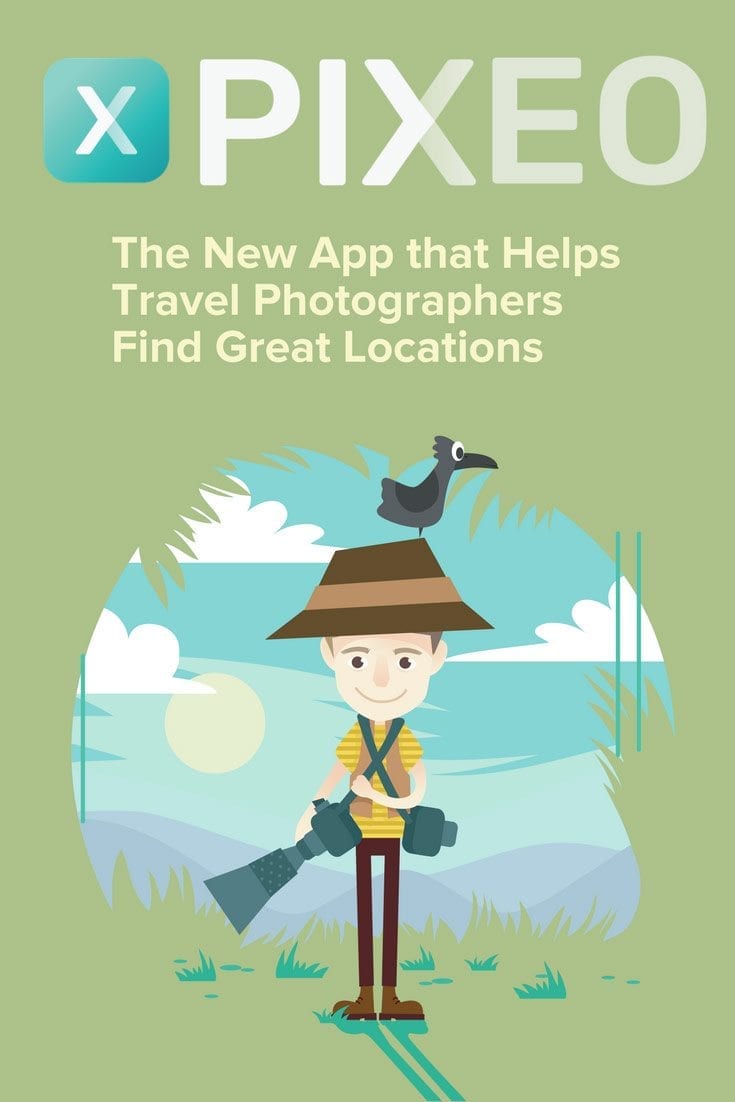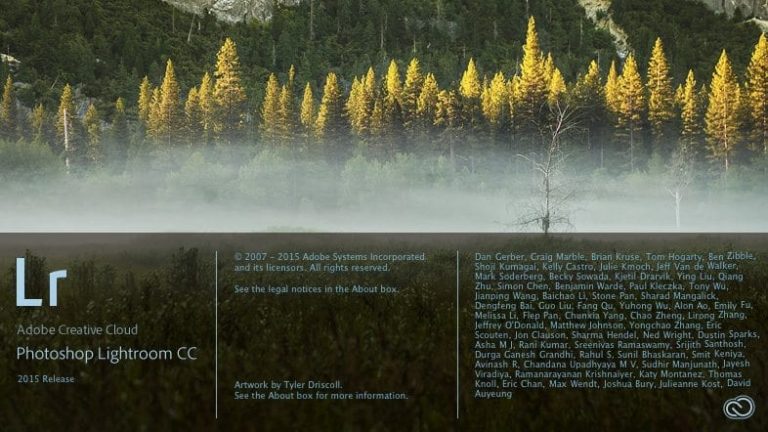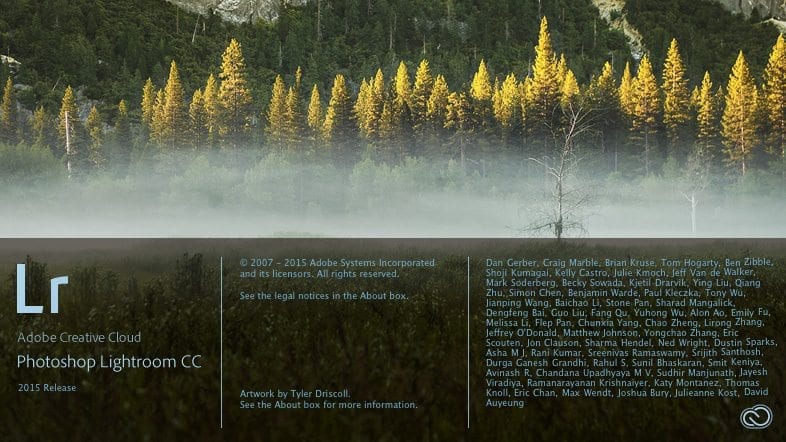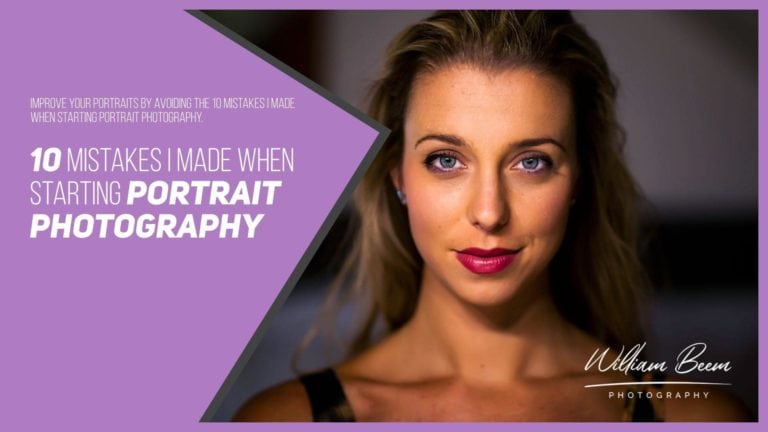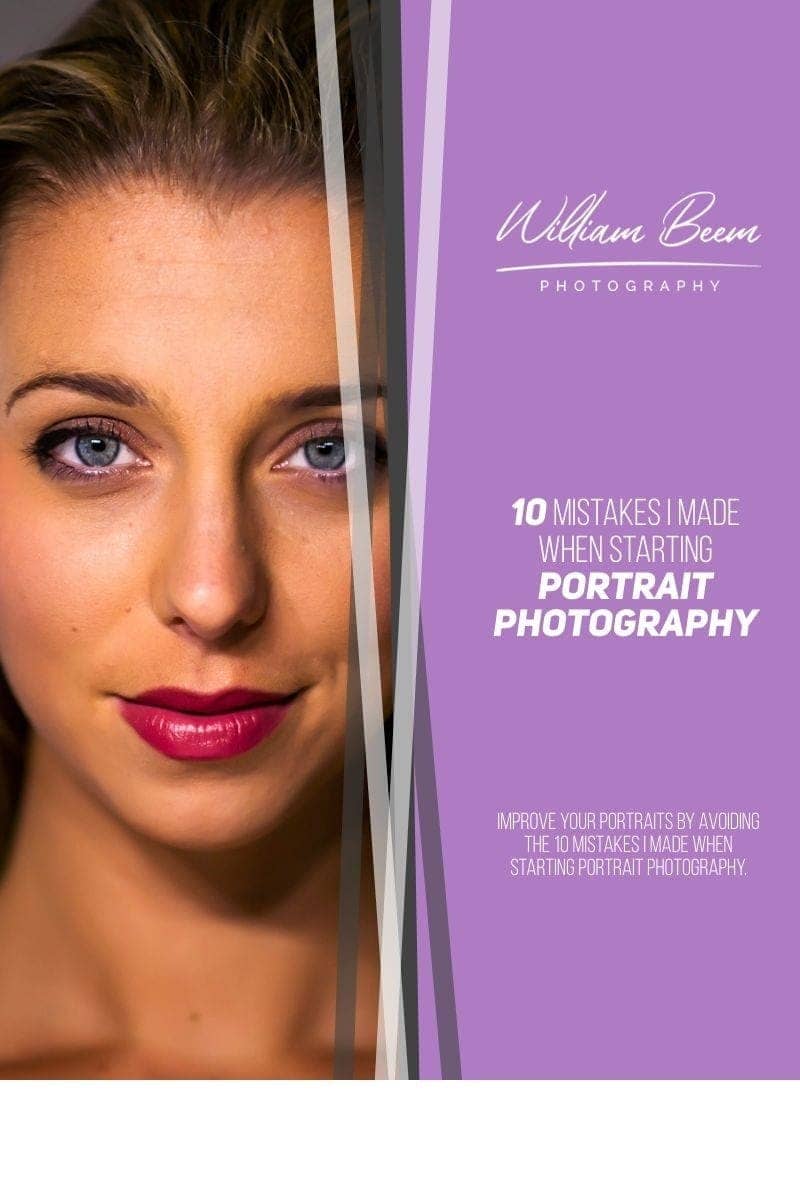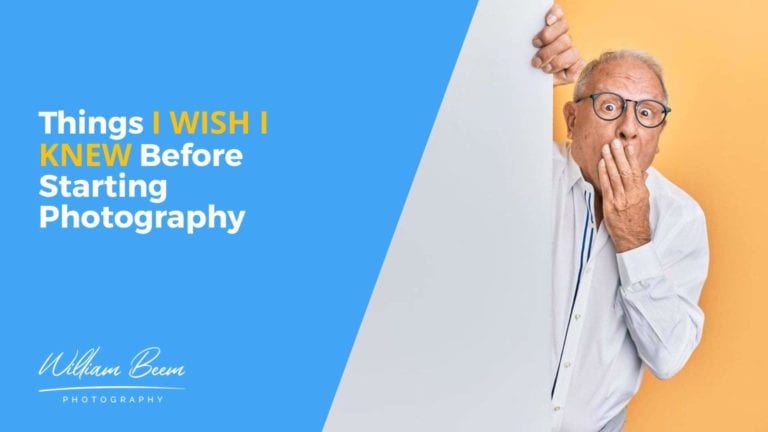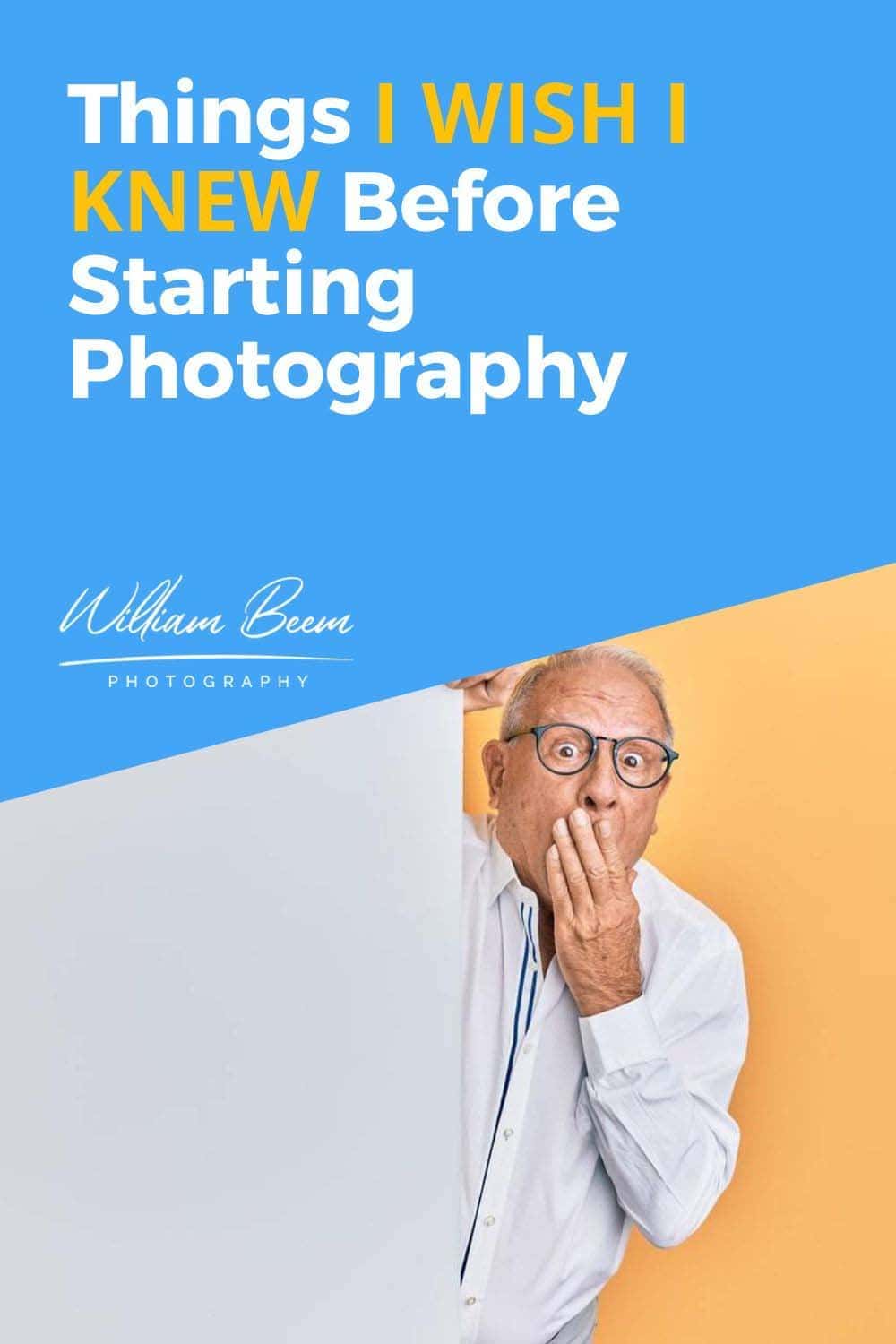Affiliate Disclosure: We earn a commission if you purchase through one of our links at no additional cost to you.
Photographers may love their tripods, but security guards seem to hate them. Sooner or later, you may have some encounters with the tripod police.
In this episode, I’ll recount some of my encounters with the tripod police and what I’ve learned as a result. It’s not all bad news, and some of my experiences may help you prevent problems if you ever run into an overzealous security guard.
Links for Encounters With the Tripod Police
Thanks for Listening!
I really appreciate you for joining me again this week. Do you have some feedback about this episode or suggestions for the show? Please leave a comment below.
If you enjoyed this show, please share it using the social media links above or below the post.
Ratings and Reviews in iTunes are incredibly helpful for the show. They help the ranking of the show and I read everyone of them. Please leave an honest rating and review for The Photo Flunky Show on iTunes.
While you’re there, don’t forget to subscribe to the show on iTunes to get automatic updates.
Many thanks to you until next time.
Subscribe to The Photo Flunky Show
Thank you for listening to The Photo Flunky Show. Make sure you get every episode by subscribing.
iTunes – https://williambeem.com/itunes
Stitcher – https://williambeem.com/stitcher
Google Play – https://williambeem.com/googleplay
Blubrry – https://williambeem.com/blubrry
Transcript
PHOTO FLUNKY: Episode 13
I’m your host, William Beem. Welcome to the Photo Flunky Show, Episode number thirteen.
Today we’re going to be talking about my encounters with the Tripod Police. Stick around!
Hi, welcome to the Photo Flunky Show. Thanks for joining us. You can find us at photoflunky.com. Also, if you want to check out show notes, they will be available at williambeem.com/episode13.
Tripod Police. What are we talking about? Generally speaking, there are no police officers that are out there looking for your tripod. Unfortunately there are security guards that are out there looking for your tripod. This seems to be a mortal sin for some folks. I don’t know why; I don’t get it. Particularly at places where there are a lot of tourists and there is a lot of photography going on and there are a lot of tripods around, if you’ve got the right combination and you catch somebody’s eye, they’re going to approach you.
Let me go back to 2010. I am at Walt Disney World’s [at that time it was called] Downtown Disney, now they are calling it Disney Springs. I had just got back not long from one of Trey Ratcliff’s first workshops for HDR. It was down in Tampa, I had a wonderful time, I was just getting into it and I wanted to practice. For some reason I thought the House of Blues at Downtown Disney would be a good subject.
So I go down there, I’ve got my camera gear, which was at that time I think a Nikon D700. I’ve got a small tripod where I’m only opening up the first set of legs, so basically it’s down kind of just a little bit below waist level and I’m at the building across from House of Blues, waiting for pedestrians to stop walking through. It’s a walkway area. There’s a large route there where people can go through and the traffic kind of ebbs and flows. So when the view is open, I’m there taking brackets. And I’m waiting for the sunset to change; I’m waiting for the lights to come on; I’m looking for all this stuff and to me it’s really just there for practise. It’s there as a hobby to try what was, at that time for me, kind of a new form of art.
So I get approached by one of the Walt Disney World security guards. They’ve always seemed to be kind of friendly to photographers. As I said, this is a tourist attraction. There are plenty of photo spots marked at the Disney Parks. These days you go there and it will say “Nikon Picture Spot” (it used to be Kodak) but they know that people want to take pictures on their vacations. So photography is not exactly something strange for these folks.
Anyways, the guard comes up to me and asks me how am I doing, what are you taking photos for and he looks at me and says, “Well, you’ve got a professional camera.” And he seemed to have a concern that I was with the media, whatever that really means. I said, “Don’t worry about it; I’m not writing any stories, I’m not working for any assignments. This is me and my hobby. I’m just trying a new technique that’s something that I’ve learned recently and I thought this would be a beautiful place to take it.”
So the guard goes away. This happens three times. The same guard! He keeps going away and he keeps coming back. Finally, the fourth time the manager comes out. His name is Don. At least, that’s what’s on his name tag. I don’t know his last name, but the manager’s name was Don. And he’s coming out with several guards and I explained to Don that I’ve been approached three times already. He says he knew about all that. All those guards work for him and they’d apprised him of their discussions with me and I said, “Well, why did you come up here and approach me?”
He said, “There were complaints.” And I’m thinking, he’s lying, right off the bat. There were no complaints. Nobody was looking at me except for one Middle Eastern family that saw that I had a camera and they said, “Oh, would you take a photo of our family for us?” And I said, “Sure!” I kept my tripod near the walls, I was out of the traffic path, I wasn’t in anyone’s way, and I wasn’t taking pictures of any of the guests. In fact I was going out of my way to wait for guests to leave so I was only taking pictures of the building.
Don, well he’s a bit of a fast talker, but it kind of takes him a while to get to his point. He dances around the issue, tells me of his responsibility for security and he wants information. He wants to know my name, he wants to know where I work, he wants to know why I’m taking photos and he seems to want to know that I’m not taking photos for commercial purposes. And I give him all this.
I tell him, “Look, once again, I’m here just for the fun of it. I’m not working for anybody; I’m not going to try to sell these photos. I simply want to try and take some HDR photos.”
I show him a few of those, I mentioned it to him. He says, “Yeah, I’ve heard about that. I’ve seen that.” And I’m thinking, OK maybe we’ll get a little peace now and I can just take my photos.
It didn’t work out that way.
Now, keep in mind I’ve got absolutely no obligation to provide him with any information at all. I wanted to be courteous and thought that he’d be satisfied and he’d go away; he’d realize that I wasn’t a threat to him. Just when I thought things were getting a little bit better he started prodding me for identification, while congratulating me on being so co-operative with him, you know, kind of putting his mind at ease. And I asked him, “Well why do you need my identification? I’ve told you my name; I’ve told you where I live. I’ve even mentioned my employer’s name.”
He expressed his concern about my architectural photography and the possibility of it being used for “something bad”. He never used the word terrorist, but you know the implications were unmistakable.
Basically, I’ve got a camera, I’m standing in the same spot, I’m not moving around and therefore I must be a terrorist. And this is the part where I just kind of hang my head.
A little background, terrorists aren’t known to take photographs. They are certainly not known to stay and chat with security officers and they’re not going to make themselves a target of a security officer. They’re not going to give a name; they’re not going to say where they work. They’re not going to say, “Here’s where you can come and find me if I do something bad!” That’s what Don wanted. Don really wanted to catch himself a terrorist.
And if you’ve ever seen me, the most terrorizing thing about me is that I’m too big and could stand to lose a few pounds.
So at this point I tell Don, “I’m not comfortable providing you with any more detailed information about me.” He never told me where that information is going to be recorded. I mean, if I give this guy my drivers license, how do I know what he’s going to do with it? It’s certainly not to my benefit and he doesn’t need it.
Quite frankly, if he’s concerned that I’m a bad person; all a security guard can really do is ask you to leave the property. You’re under no obligation to do anything else. I didn’t need to give him the information that I had. He’s not a law enforcement officer. All he’s really doing is he’s the official at the property that says either leave, or I’ll call the police.
And of course that’s exactly what he did. He didn’t tell me to leave, but he says that if I don’t give him that information, he’s going to call Orange County Sheriff’s Office. I said, “Fine. You go ahead and make your call. I’m going to go ahead and leave.”
I’ve told him twice already that if he’s unhappy or dissatisfied, I’ll be happy to leave. Finally, I just packed up my stuff and left. I mean, there gets to be a point where you know you’re not going to get your shot anymore because I’ve got all sorts of security guards standing around me. They’re making sure that they use their body to block my photo of the House of Blues, so there’s really no point in staying there anymore. It was a shame for me because the light was just getting to where I really wanted it. I didn’t quite get the shot I wanted.
My plans to shoot the photos are over. I was going to have dinner at the House of Blues, but Don didn’t exactly make me feel like a welcome guest there at Disney World so I left. I just though, I’m an Annual Passholder here. I come to Disney all the time. I’ve been a guest here since the place opened up. I live in Orlando and this is where I come to have fun. It’s definitely not the kind of experience that I want to have. But anyways, I’m walking out the parking lot. At this point, Don is following me and another guard there named Eugene. Eugene seems to be a nice guy. He’s not saying much. I’m starting to ask them questions and all Eugene says is, “Well I don’t really want to say anything.” I guess I can’t blame Eugene because if Don is his boss he doesn’t want anything to come out, but Eugene seemed a little bit uncomfortable to me.
Anyway, at this time Don is calling what he tells me or seems to be the Orange County Sheriff’s Office and I can hear him talking. He says he asked for my name and I was unresponsive. But now that’s a blatant lie! I told you exactly who I was! More than once. Now that I know Don’s a liar, and I called him out on it loud enough for whoever is on the other end of the phone to hear it and that just really annoyed Don and I felt a little smile about that. I’m thinking, you know, it’s bad enough that he lied about it, but now he’s lying to the police as well. Shame on you Don, wherever you are.
I think in Don’s mind, he wouldn’t have rationalized it because he was thinking, “I’m gonna catch me a terrorist today! There’s a guy here with a big camera and if he’s not with the media, he must be here for bad things.”
And this is the kind of mentality of the Tripod Police. They don’t know what you’re doing so therefore, you’re up to no good. Never mind the fact that there are a lot of things that most people don’t know that are completely innocent.
I don’t know his job as security. He doesn’t know what I’m doing as a photographer, but you’d think that you’d be able to source a person out based on a conversation with them as to whether you’re really having a terrorist sitting there telling you where he works and his name and where he lives, versus someone how just says, “Fine. I’m leaving. I’m gone.” And then sneaks back around and does it again later.
I get in my car, told him I was ready to leave and unless they plan to detain me against my will, kind of get out the way. They’re blocking my car so I can’t drive anywhere.
Don suddenly said, “We’re not going to do that.” I was free to go. He instructed his security guards around me, “Get pictures of everything. Get pictures of the tag. Get pictures of this; his face; his car ….” and all that. And here he is chastising me for taking photos, but yet it’s exactly the tool that is useful to him.
I’m driving off and a Disney Security car followed me until I left the property. I guess they wanted to make sure that I really did go; not just somewhere else on property.
And here’s the stupidity of this. And I told this to Don, too. I said Walt Disney World is probably one of the most photographed locations in the world. You can walk around as a tourist with a tiny camera and get exactly what you need if you’re up to no good. You can go to Google Earth and get satellite photos of what you need. In fact, you can go charter a helicopter and fly over Walt Disney World from a local tourist place and take pictures with a long lens if you want to. There is nothing about a guy sitting in front of the House of Blues with a tripod that is going to get something that can’t be gotten much more easily or much more surreptitiously than someone who is clearly sitting in public, waiting there for the perfect light to come around. That wasn’t really helping Don at all.
So I learned a few things from that, and here’s what I learned.
First, appeasement doesn’t work. You don’t know what’s going to set them off so your best bet is to stay quiet.
Second, remain calm and polite. I could have been indignant, I could have yelled, I could have screamed and all that would have done was escalate things and just make things worse than what they were. And if the Orange County Sheriff’s Office did show up, it’s certainly not going to help me if I’m yelling and screaming when a Deputy comes up.
The next thing you do is follow up. I wrote to Walt Disney World management to learn what was going on. Why was I singled out? And then you need to listen to what the security guards say. Sometimes they will reveal information and intent. That is useful to you and maybe you can use that to either de-escalate the problem or know that it’s just time to get out of there.
And finally, share. There are people out there in places and security guards that are just willing to hassle photographers for whatever reason. Tell your fellow photographers. Let them know, it’s not worth it to go here, or this is what happened. You can decide for yourself if it’s worth it to go there.
For what it’s worth, I’ve been back to Walt Disney World many times. I’ve taken a lot of photographs there, I continue to do so and I have a good time. But Don, the security manager over at Downtown Disney in 2010 just kind of ruined my day and I’ll leave it at that.
So after that my next encounter was with the Las Vegas Tripod Police. It’s 2010 and I’m staying at Aria. I thought, OK, let’s do a little architectural photography. They’ve got some interesting looking buildings out there. I found a spot that I thought looked pretty good. I just started to take a little bit of some brackets for some HDR and a security truck pulled up next to me and a voice from the truck sternly told me, “You need to fold that up and leave.”
I thought, well isn’t that nice! I’ve been to this kind of spot before. I didn’t argue with them. I thought, you know what? I know that I’m on Aria’s property or MGM Resort owns that. It wasn’t out on a public sidewalk. It wasn’t out on the public street or public property of any kind. They own the property there and I thought, you know, he’s a security guy for there and if they don’t want you taking photographs, they don’t want you taking photographs.
So I start folding my stuff up. While I’m doing this, I asked him why. He says, “It’s against corporate policy.” And that got me just a little bit more curious. I asked him, “What is the corporate policy?” And that made him think for a moment. He paused and he told me, “You can take all the pictures you want, but not with a tripod. Something about a tripod is magic for security guards. I don’t know why.
Let’s back up a step. If you’ve got a tripod that’s in the way of people, you’re a safety risk. I get that. You don’t want to be blocking traffic. You don’t want to be in anybody’s way. You can’t be selfish about taking your photographs. You’ve got to be respectful to others. That’s my policy. I don’t want to be blocking anybody else. I don’t want anyone tripping over my gear either. So it’s safety for them, it’s safety for you and it’s safety for your gear.
I’m in a place at night where there is absolutely nobody walking around, I’m off to the side. There’s not really a safety issue. But it’s corporate policy, but he’s a security guard, he’s in charge of enforcing corporate policy so I thought, OK, I’ll do what the nice man says.
I said, “Well, let me see what I can do about this.” The next day I called up MGM and I started looking for someone who could define the corporate policy for me. I end up talking to the PR Department and it wasn’t a really good time because it was Easter Sunday and I’m in Las Vegas trying to get hold of somebody. But I left my message.
Monday morning rolled around and I finally got a call back. I’d mentioned I was staying at Aria. The person who initially answered me either didn’t know how to respond or wasn’t in a position to grant authorization. She transferred me to yet another voicemail for Yvette Monet. I don’t know if she’s still with them or not, but I left my message with her. She called me back. Rather quickly, actually. I got a voicemail message back at about one o’ clock that day. She was really nice. She asked reasonable questions. She asked, what do you have in mind to do with these pictures? Are you selling them or anything like that and I said, “No. This is really personal use. I’m going to put them on Flickr, I’m going to put them on my website and it’s just because I think the buildings are beautiful. I want to do a little architectural photography and I came here to stay at this resort just to do that.”
And she’s kind of a little bit back and forth. She’s still very nice, but she says you know, tourists just don’t bring tripods on vacation. I said, “Well I’m a bit of a stranger one. I’m into photography, I bring this gear around, I’m from Orlando and I see a lot of tourists at Walt Disney World that actually do bring tripods over there.” But I didn’t want to push that issue. I didn’t want to make her feel like I’m back talking her. I just wanted to say that a few of us do if we’re into photography more so than the casual snapshot.
And she said, “OK, I will grant you permission to shoot tonight from 7 pm to 9 pm.”
She called up ahead to the security office to let them know. She gave me her phone number in case someone didn’t get the word. I thought, “This is fantastic. This is the way things should have gone at Disney World.” Rather than having someone berating you and making you feel unwelcome, this was a much better experience.
The security guard came on stern, but after we started talking he was a nice guy. I called up and got to the right person. She was very nice (Ms Monet).
So I go there and I take my photos again. I set up in the same spot and then the white security truck pulls up again and said, “Sir, you’re going to have to fold that up and leave.”
I’m thinking, I know what this is like, I’ve got permission so I said to him, “Harry” (he’s got a name tag that says Harry), “Don’t worry, I’ve got permission from Ms Monet and as he gets out of the truck he says, “Where’s your paperwork?”
I thought, uh-oh, I don’t have any paperwork. And he says, “Well, if you were approved to be here you’d have paperwork.” And I’m starting to pack and I thought, you know wait a minute. He’s on his walkie talkie talking to somebody, there’s a voice in his ear that only he can hear. He asked me a few questions and I answered, you know, much like the conversation I had with Ms Monet – what are you taking the pictures for, and that sort of thing. Then we’re waiting and we get into a little bit of small talk and he says the reason that I caught his attention is because the spot I’m in is one where the cameras that they have around there can’t see me. So that’s what’s really got his attention; not so much that I’ve taken photos, but I am in a spot where the cameras can’t see me (and I hadn’t even thought of that myself) and here I am taking pictures. So that kind of makes them wonder a little bit.
He pointed out where the security cameras are, he shows why this is a blind spot and I said, “Look, I spoke with Yvette Monet. She said she would call ahead to the security office. Would you please check?”
He did and he comes back and says, “You’re approved.” Harry is a nice guy. He’s doing his job and as he mentioned, sometimes doing your job as a security officer means being a hard case. They come up and want to give you that sense of authority.
Basically, they want to intimidate you. The difference between Harry and Don is that Harry was reasonable. Don was just out for something that I’ll never understand.
As it turns out, I ended up taking more pictures in Las Vegas and when I got through, as a thank you, I sent a couple of them to Ms Monet at MGM and we actually got a little bit of a deal for some of the shots that I had taken.
So not only was I there for a hobby, but I did some work that a company liked and it led to a little bit of business.
The next year, 2012, I’m back out at Walt Disney World. Animal Kingdom this time.
There’s something that happened there that I had not seen happen before. They were open at night. It’s dark out and they’ve got lights on the buildings. Usually Animal Kingdom is a place that they close down before sunset because the animals want to sleep or they don’t want to be bothered with tourists driving through their neighbourhood. I don’t know. But for some reason it was open.
I was having a blast. I was going from section to section of the park taking pictures and I’m in the Asia area one time, I’ve got this wonderful little view of a building and some lights going on and this woman walks up to me with a Disney Parks jacket on and says, “I’m sorry Sir, but you have to stop taking pictures.” I asked her (her name was Angie) and she said it’s because I have a big camera. It would be alright if I had a little camera, but I have a big camera and I’m taking pictures of their facades. And I said, “Well, everybody takes pictures of your facades. That’s why they’re here, so people can see them and some people are going to take vacation photos of them. What difference does it make?”
She said, “Well you have a professional camera.” And I said, “Trust me, it’s not a professional camera at this time! This is just for my hobby. This is for my own fun.” I’m not going to make any money trying to sell Disney photos because those photographs inside of Disney Parks are of their property and I don’t want to run into any trademark issues, any copyright issues; they own the property. They’ll sell their own photos if they want to. I’m not trying to sell photos of Disney World.
It was literally for my own fun. It’s a place I enjoy. Once again, it ruined my night. She wasn’t as rude as Don. She was almost a little bit apologetic, but she was much nicer about it. I’m off and on my way.
And that is kind of the difference in what your encounters with the Tripod Police can be like. I’ve seen a few other things. Another time in Las Vegas I was going to the Stratosphere, up to the top and the guy in front of me had a little pocket tripod and they have a policy at the Stratosphere when you go up to the top, there are absolutely no tripods.
There’s a security guard there that is doing the check, they’ve got a metal detector before you go up there, she looks at it and says, “That’s a tripod. You can’t have that!” And she was brutal to the poor guy and she said, “I don’t care. Leave it here.” So he leaves it aside.
And then they come to my bag and I don’t have a tripod and she’s looking through this and she’s like, “What is this?” And I said, “That’s to hold my camera.” She said, “No tripods!” I said, “It’s not a tripod. That is a Manfrotto Magic Arm and Superclamp.”
That was kind of fun because it just stopped her for a moment. She asked, “Well, what does that do?” I said, “You clamp this onto the railing and it gives you an arm that tightens up so then you’ve got a stable platform to take your photographs.”
And she thought about it for a moment and I said, “It’s not a tripod; it’s not against your policy.” And she decided I was right, so I went up and I got my shot from the roof of the Stratosphere using the Manfrotto Magic Arm. Now granted, I didn’t count on how strong the wind was up there, but I still managed to get some decent shots. I didn’t have a tripod, but it was much better than if I tried to do something hand-held.
The same thing happened at the National Air and Space Museum and I walked in there and they’ve got railings around all of the exhibits. I’ve been there before. I knew the railing was there and I thought, OK they don’t allow tripods. I’m not even going to bother taking one in.
I take the Magic Arm and the Superclamp and again security guards came up to me and they said, “You can’t use that.” And you know, the same conversation went on. I said, “Why?” They said, “Well, we don’t allow tripods.” I said, “It’s only got one leg and it’s not touching the ground. It’s not a tripod.” I sat there with one guard while the boss went off and checked things.
They came back and very nicely said, “You’re approved. Enjoy your day, Sir.”
And I thought, that’s great!
The only other occasion I had with the Tripod Police that actually were law enforcement was at the White House.
I was outside the gate; I wanted to get a nice shot of the White House. I lined it up and they’ve got this wrought iron gate that, if you want to get a shot of the White House, your camera pretty much has to be touching the gate.
So I put it on the tripod, I’m leaning it forward a little bit so that the gate is not in the way of the lens and I start clicking off some photos. A uniformed Secret Service man comes up to me and says, “I’m sorry, Sir, but nothing is allowed to touch the gate please.”
And I said, you know what? No problem at all.
One, I’m not going to mess with the Secret Service. And two, I got my shots. I only needed that one angle from there. I got what I needed. I didn’t know about the prohibition against touching the gate, but you know at the White House, I get it! I’m not going to mess with the White House or US Secret Service.
The guy was super friendly. He just simply told me and advised me of the rules, I said, “Yes, Sir” and I’m out of here.
That’s my experience with the Tripod Police. Fortunately I’ve had many more happy experiences where no-one has bothered me whatsoever. I know this has happened to a lot of other people out there. If you’ve had some experience with the Tripod Police, I would really love to hear your experiences.
Let me know. Have you had issues with the Tripod Police? Did they work out for you? Were you able to resolve the issue or did it turn into just one big mess?
Hopefully more and more security guards are getting the message that tripods, so long as they’re not causing a safety issue, really are not a threat to anybody’s business and I hope that we don’t have to worry about any more issues with the Tripod Police.
Thank you very much for joining the Photo Flunky Show. As I’ve mentioned, show notes are going to be available at williambeem.com/episode13.
I’d love it if you’d sign up on iTunes. You can go to photoflunky.com or you can go to williambeem.com/itunes. Either way, you’ll get a link taking you straight to the site on iTunes. Please subscribe and leave an honest rating and review. I read every one of them, I appreciate it and I’ll talk to you next time.

